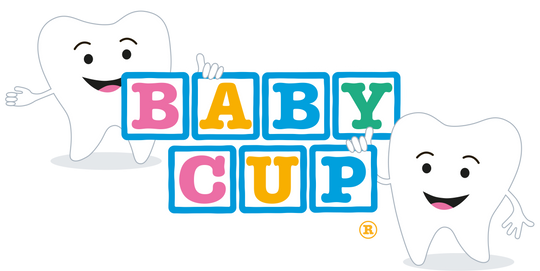
Lifting the lid – and other mealtime weaning hacks for baby oral health
Lifting the lid – and other mealtime weaning hacks for baby oral health
Dental decay is largely preventable yet it is the leading reason for hospital admissions in England among 5-9 year olds. With the cost of living crisis exacerbating an already major public health issue of lack of access to dental care, it’s perhaps no surprise that Camilla Kingdon, president of the Royal College of Paediatrics and Child Health, called the effects, of current pressures, on children’s teeth, “a national disgrace.”
Finding cost-saving, healthy habits and little hacks that can be easily implemented at home, are great ways to make a big difference:
Using baby-safe mini open cups from weaning, instead of multiple cups for different ages and stages, is a simple and impactful step that saves money and, by encouraging sipping, also helps childhood oral health and development.
The BSPD (British Society for Paediatric Dentistry says), “We recommend the use of open top or free-flow cups and advise that these are introduced when you start weaning your baby around the age of six months. There is research to show that bottle use after a baby’s first birthday can increase the risk of a child developing tooth decay. Infants quickly learn to grip a specially designed open weaning cup and controlling the flow of liquids they drink can also help develop hand-eye co-ordination.”

Little ones don’t need any drink other than their usual milk and, from weaning onwards, water. Supermarket shelves do have tempting juices and flavoured cordials, but whilst children are still young there is no need for these extra costs and sticking to just milk and water helps look after the family budget and those little teeth and gums too.
Fruit is a great way to add hydration and vitamins to the diet but beware of the sugars. Although natural, sugar in fruit still impacts on tooth enamel and even more so on the softer enamel of baby teeth. To help lessen the risk of tooth decay serve fruit at mealtimes when saliva and water will help cleanse the teeth, rather than in between meals.
Reading the small print on food labels adds time to a shopping trip but is massively worthwhile. So often, front of packs have enticing messages to draw us in with claims such as ‘with vitamin c’ or ‘no added sugar’, but it’s the ingredients list and the nutritional information where the true picture can be found. A seemingly great claim might be overshadowed by other ingredients the item contains. To protect children from tooth decay and other health problems, the Royal College of Paediatrics and Child Health has even called on the UK government to bring in mandatory guidelines on the amount of sugar and salt that baby food can contain.
Sara Keel, founder of Babcup Sippeco mini open cups, and a member of the All-Party Parliamentary Group on a Fit and Healthy Childhood, says, “Baby teeth don’t last forever, but their impact does. It was wanting to look after my own children’s oral health and development that inspired me to create Babycup and make baby-safe mini open cups to save families money and help their little ones’ oral health and development. I am calling on Government to give support to a national campaign to help families hear all about the small but powerful steps they can take at home to help look after their children’s teeth because every child deserves health from the very start.”
References and notes:
https://www.bmj.com/content/380/bmj.p5
NHS Digital. Tooth extractions due to decay for children admitted as inpatients to hospital, aged 10 years and under. Mar 2022. https://digital.nhs.uk/data-and-information/publications/statistical/nhs-outcomes-framework/march-2022/domain-3-helping-people-to-recover-from-episodes-of-ill-health-or-following-injury-nof/3.7.ii-tooth-extractions-due-to-decay-for-children-admitted-as-inpatients-to-hospital-aged-10-years-and-under.
Lucas PJ, Patsios D, Walls K, et al. Neighbourhood incidence rate of paediatric dental extractions under general anaesthetic in South West England. Br Dent J2018;224:169-76. doi:10.1038/sj.bdj.2018.77. pmid:29422576
Royal College of Paediatrics and Child Health. Paediatricians call out unregulated, high sugar and salt baby foods. Dec 2022. https://www.rcpch.ac.uk/news-events/news/paediatricians-call-out-unregulated-high-sugar-salt-baby-foods.
